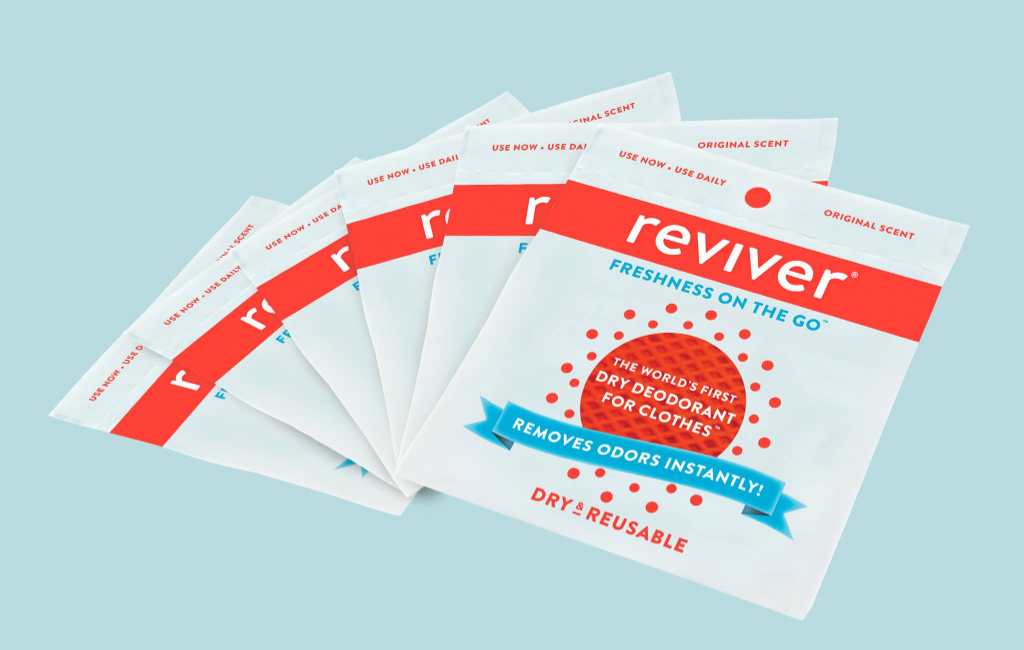Paper Box Pilots


DEAL
EPISODE SUMMARY
🕓 Air Date: October 10, 2014
Asking For:
$35,000 for 25%
Investor:
Kevin O'Leary
Deal:
$35,000 for 50%
PRODUCT SUMMARY
Paper Box Pilots sells sticker kits that transform plain cardboard boxes into creative vehicles, providing hours of imaginative play for kids.
WATCH HERE
IN A RUSH?
Click these to jump to the section you want to read.
Background Story
Noah, the CEO of Paper Box Pilots, along with his brother Milo, the CFO, embarked on the journey of creating their imaginative venture. The founding duo’s inspiration for Paper Box Pilots stemmed from their desire to build a business that could strengthen the bond between parents and children through creative play. Noah’s background reveals a personal connection to the product as a father. As a parent, he recognized the universal phenomenon of children being more fascinated by the boxes their toys came in than the toys themselves.
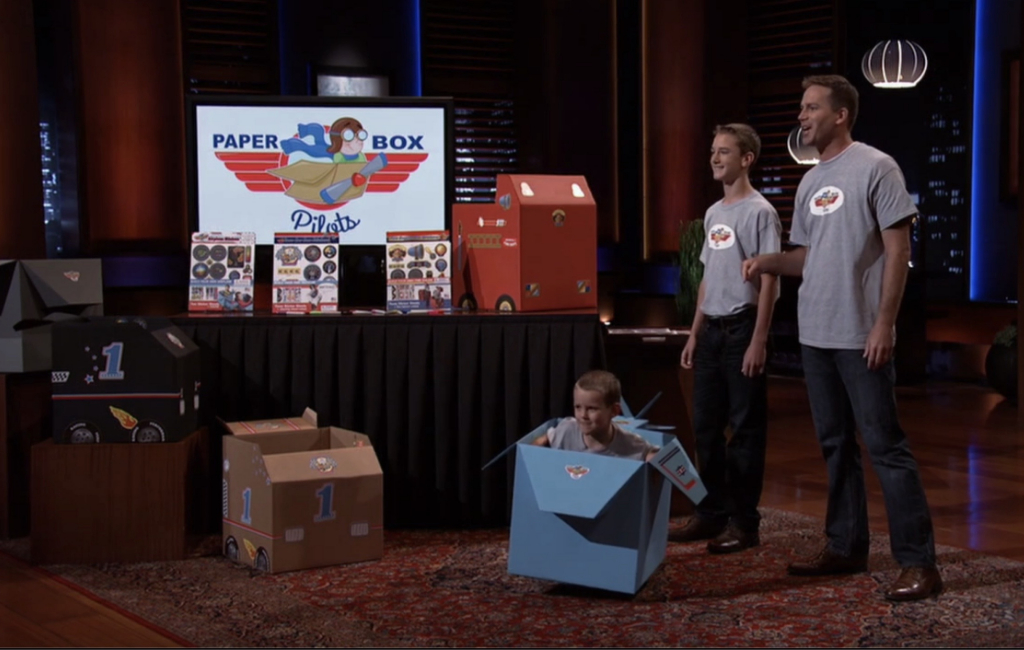
This realization sparked the idea to turn this common occurrence into a business opportunity. The co-founders recalled their own cherished childhood memories of building box airplanes with their father, highlighting the sentimental and familial aspects of the venture. Motivated by a desire to enhance children’s play experiences and bring families together, Noah and Milo initiated the journey of designing their unique product. The process began last summer when they collaborated on crafting the concept for Paper Box Pilots. This family-driven venture sought to tap into the inherent creativity of children by offering sticker kits that could transform ordinary cardboard boxes into extraordinary vehicles.
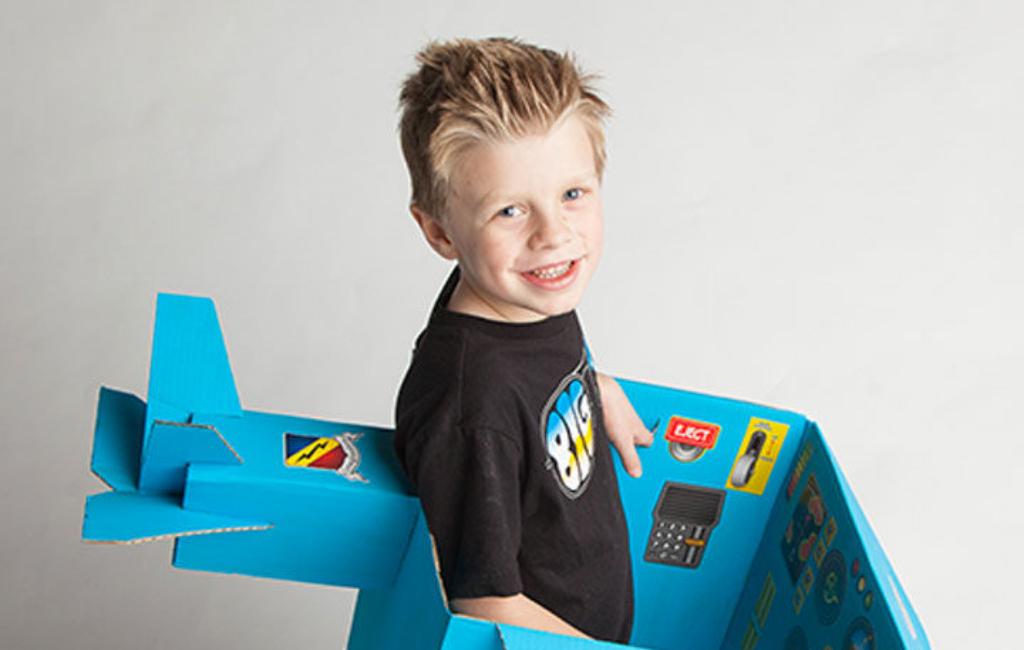
Their dedication to fostering creativity and providing a platform for kids to engage in imaginative play is evident in the product’s design and the company’s mission. Noah’s personal narrative, coupled with their shared experiences as siblings and their commitment to fostering creativity in children, adds a genuine and heartfelt dimension to the story of Paper Box Pilots. This background story serves as the foundation for their entrepreneurial endeavor and resonates with the universal theme of cherishing the simple yet profound moments of childhood.
The Product
Paper Box Pilots offers a unique and engaging product designed to amplify the creativity of children through imaginative play. Their core offering is sticker kits that ingeniously transform plain cardboard boxes into exciting and visually appealing vehicles. The kits, carefully crafted by Noah and Milo, provide children with an opportunity to personalize and bring their cardboard creations to life.
The process is simple yet captivating: each kit includes a set of stickers adorned with playful designs and a helpful diagram guiding kids in applying them to their cardboard canvas. The end result is a custom-made vehicle, limited only by the child’s imagination. This approach not only promotes creativity but also encourages hands-on activities, fostering essential developmental skills in young minds.
The product’s versatility lies in its ability to work with any standard cardboard box, allowing children to transform a mundane item into a source of endless entertainment. It cleverly capitalizes on the universal tendency of children to find joy in the simplest of things, like a cardboard box.
Paper Box Pilots’ sticker kits can be purchased online, providing convenience for parents seeking an engaging and educational toy for their children. The decision to exclusively sell the sticker kits, rather than pre-folded boxes, sets Paper Box Pilots apart from competitors, emphasizing the value of creative construction over ready-made solutions. This unique approach aligns with the company’s vision of promoting imaginative play while offering a budget-friendly and accessible product for families.
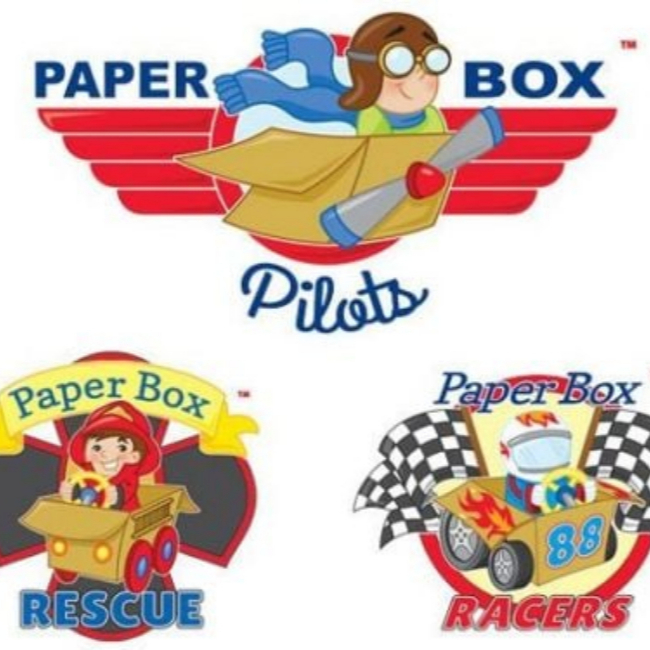
How It Went
The company’s position before Shark Tank
In its eight months of existence, Paper Box Pilots has shown promise and gained a foothold in the market. With approximately $7,500 in sales, the company has demonstrated its viability in the toy industry. The product, sticker kits that transform ordinary cardboard boxes into creative vehicles, has resonated with customers, with sales occurring in 23 retail accounts. These accounts include independent toy stores, a boutique, a hardware store, and a box store, showcasing a diverse distribution network. Paper Box Pilots maintains a balanced revenue stream, with approximately one-third of sales generated online. The remaining two-thirds are split between wholesale accounts and deal sites, where the company tests market response.
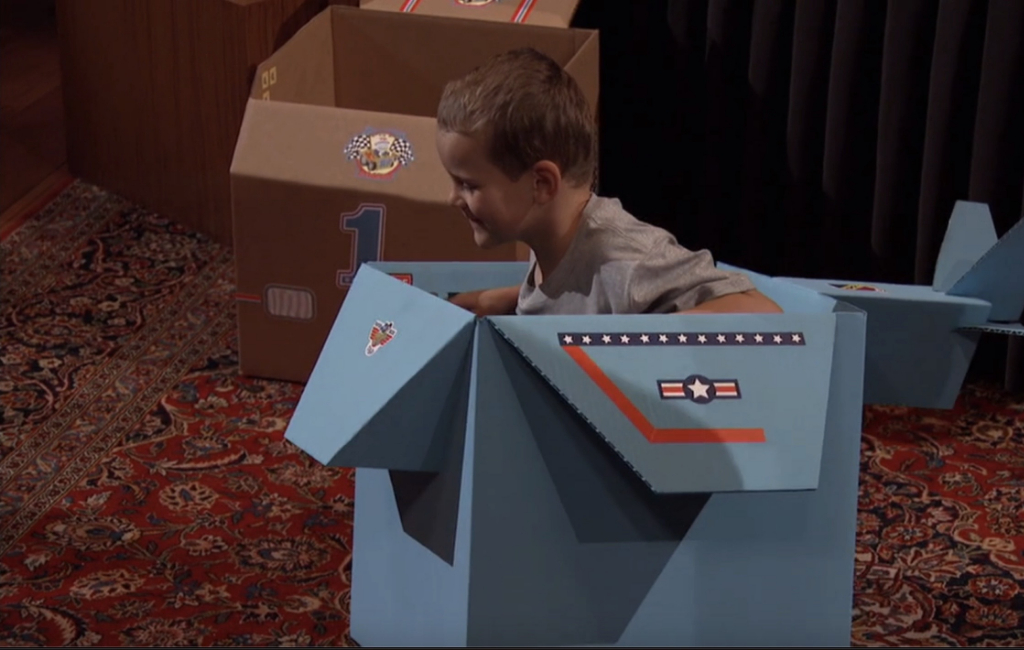
This strategic approach indicates a dynamic sales strategy, tapping into both traditional retail channels and the digital marketplace. The founders, Noah and Milo, actively engage with vendors and have established partnerships with various retailers. Their commitment to hands-on involvement in all aspects of the business underscores their dedication to the venture’s success. The company currently relies on its own funds and sales revenue for financing, with no explicit mention of external investment or loans. The product’s low production cost, with a completed kit priced at 94 cents, allows for healthy profit margins, especially considering the wholesale price of $3.75.

This cost-effective model contributes to the company’s financial sustainability. The company’s ability to secure deals with multiple retailers and maintain a diverse customer base is indicative of a sound business strategy. As the company grows, careful consideration of its financial structure and potential external funding may become crucial for expanding operations and reaching new markets. The current focus on online, wholesale, and retail sales provides a solid foundation for further scaling the business and ensuring sustained success in the competitive toy industry.
The Negotiations:
The negotiations for Paper Box Pilots in the “Shark Tank” episode saw a lively exchange of offers and considerations from the sharks, ultimately resulting in a surprising decision by the founders. Noah and Milo initially sought $35,000 for a 25% stake in their company. Kevin O’Leary, also known as Mr. Wonderful, made the first offer, proposing $35,000 for a substantial 50% stake in the business. Highlighting his extensive experience in the toy industry, O’Leary positioned himself as a mentor with valuable insights. Following O’Leary’s offer, Robert Herjavec entered the negotiations, offering a higher investment of $50,000 for the same 50% equity.
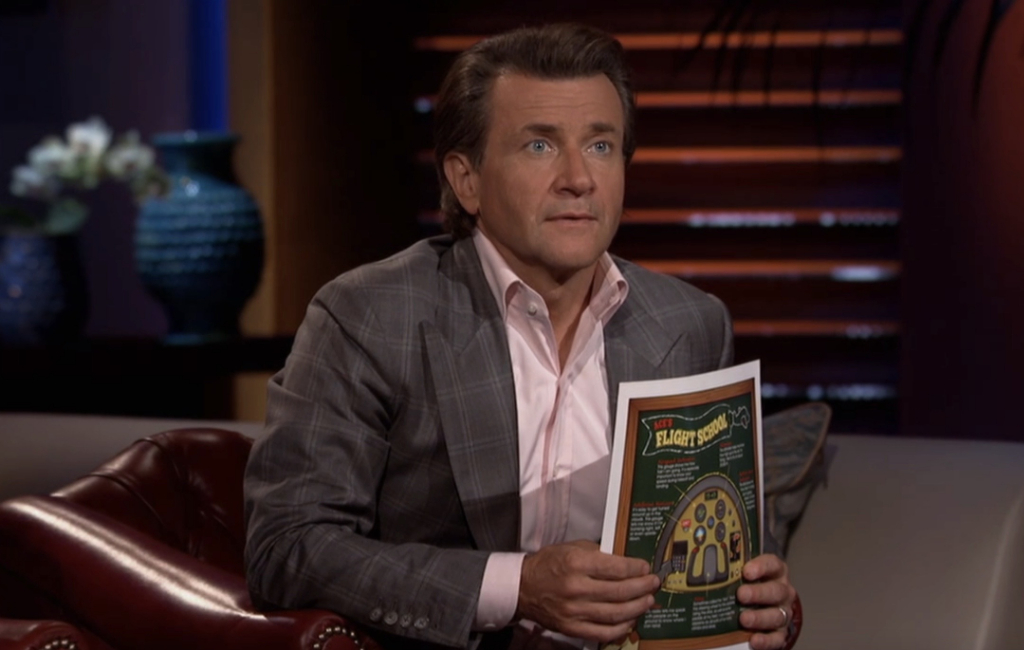
Herjavec stressed the need to create a complete package, including the box, for scalability and success in the market. Barbara Corcoran, on the other hand, presented a unique proposal, suggesting $35,000 for a 35% stake but with the condition that the product becomes more inclusive by offering girl-friendly versions. In a surprising turn of events, Noah chose to accept Kevin O’Leary’s offer of $35,000 for a 50% stake, despite the higher equity and investment offered by both Robert Herjavec and Barbara Corcoran.

Noah’s decision was influenced by O’Leary’s extensive background in the toy industry, which he deemed essential for the company’s growth. The negotiations showcased the diverse strategies and considerations of the sharks, with O’Leary emphasizing industry expertise, Herjavec focusing on product scalability, and Corcoran advocating for inclusivity. Noah’s choice of Mr. Wonderful reflected the weight given to O’Leary’s experience, setting the stage for an interesting and potentially fruitful partnership between the sharks and Paper Box Pilots.







